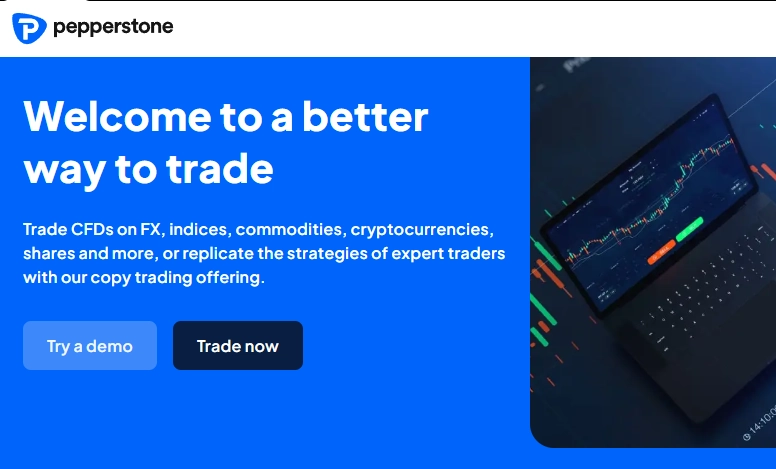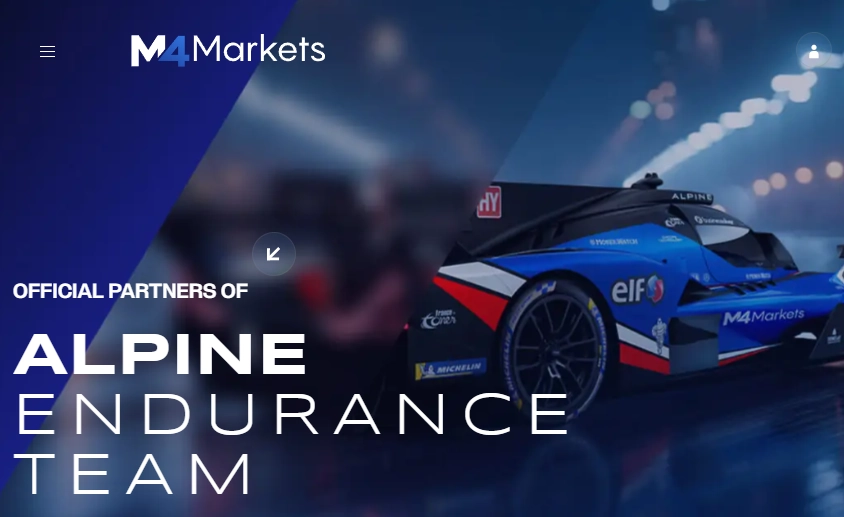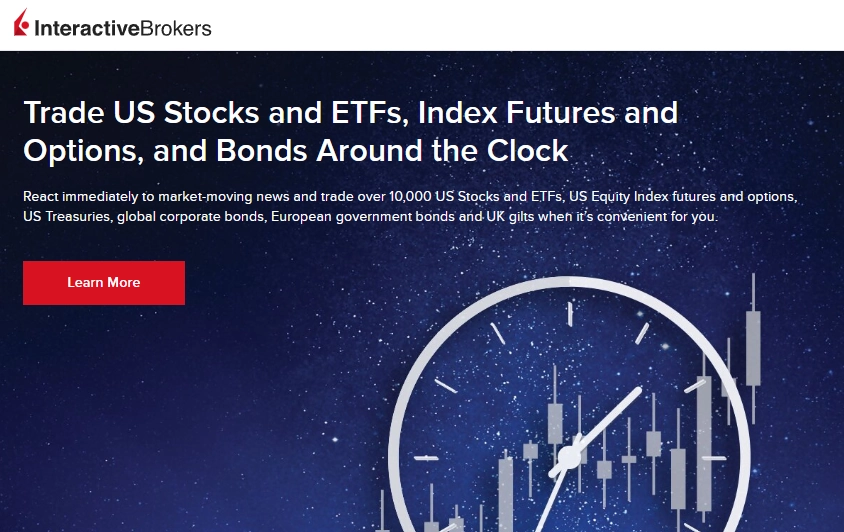TOP 2025 regulated broker best for CFD trading
Best CFD Brokers of 2025: Your Complete Guide to Regulated Trading Platforms
The CFD (Contract for Difference) trading landscape has evolved significantly, with 2025 bringing enhanced regulatory frameworks and innovative technologies. Finding the best CFD broker requires careful consideration of regulation, fees, platform quality, and available instruments. Our comprehensive analysis reveals that all brokers featured in this guide are legitimate, regulated entities—none are scams.
Based on extensive research and market analysis, we've identified five standout platforms that excel in different areas of CFD. These regulated CFD brokers offer competitive spreads, robust platforms, and strotradingng regulatory oversight to protect your investments.
FP Markets: Premium Trading Experience

FP Markets has established itself as a leading force in the CFD trading space, offering institutional-grade execution with retail accessibility. This Australian-regulated broker provides access to over 10,000 tradeable instruments across multiple asset classes.
Key Features:
- ASIC and CySEC regulated
- Raw ECN spreads from 0.0 pips
- MetaTrader 4, MetaTrader 5, and IRESS platforms
- 24/7 multilingual customer support
Pros:
- Ultra-tight spreads on major currency pairs
- Excellent order execution speed
- Comprehensive educational resources
- Strong regulatory framework
- Advanced charting tools and market analysis
Cons:
- Higher minimum deposit for some account types
- Limited cryptocurrency CFD options
- Complex fee structure for beginners
Minimum Deposit: $100
Pepperstone: Technology-Driven Trading

Pepperstone stands out for its cutting-edge technology infrastructure and competitive pricing structure. The broker's focus on execution speed and platform reliability makes it particularly attractive to active traders and scalpers.
Key Features:
- FCA, ASIC, and DFSA regulated
- cTrader and MetaTrader platforms
- Sub-millisecond execution speeds
- Social trading capabilities
Pros:
- Industry-leading execution speeds
- Competitive spreads and low commissions
- Multiple platform options
- Strong mobile apps
- Excellent customer service ratings
Cons:
- Limited educational content for beginners
- No proprietary platform
- Restricted leverage for retail clients in some regions
Minimum Deposit: $200
M4Markets: Emerging Market Leader

M4Markets broker has rapidly gained recognition as one of the top CFD trading platforms of 2025, combining competitive trading conditions with innovative features. The broker's commitment to transparency and client protection has earned significant market trust.
Key Features:
- Multiple regulatory jurisdictions (CySEC, ASIC)
- MetaTrader 4 and MetaTrader 5 platforms
- Over 1,000 tradeable instruments
- Dedicated account management services
Pros:
- Highly competitive spreads across all asset classes
- No commission on standard accounts
- Comprehensive market analysis and research
- User-friendly onboarding process
- Strong risk management tools
- Regular competitions and bonuses
Cons:
- Relatively new compared to established competitors
- Limited platform customization options
- Withdrawal processing times may vary
Minimum Deposit: $250
M4Markets review data suggests the broker excels in providing balanced trading conditions suitable for both beginners and experienced traders. The platform's intuitive interface and educational resources have received positive feedback from the trading community.
AvaTrade: Comprehensive Trading Solutions

AvaTrade brings over 15 years of industry experience, offering a well-rounded trading environment with strong regulatory backing. The broker's diverse platform options and educational resources cater to traders of all experience levels.
Key Features:
- Regulated in 9 jurisdictions globally
- Multiple proprietary and third-party platforms
- Comprehensive educational academy
- Social trading integration
Pros:
- Extensive regulatory oversight
- Wide range of instruments
- Multiple platform choices including AvaTradeGO
- Robust educational resources
- Copy trading features
- Negative balance protection
Cons:
- Higher spreads on some instruments
- Limited cryptocurrency offerings
- Inactivity fees after 3 months
Minimum Deposit: $100
Interactive Brokers: Professional-Grade Platform

Interactive Brokers caters to serious traders seeking advanced tools and global market access. The broker's sophisticated platform and competitive pricing structure appeal to high-volume traders and institutional clients.
Key Features:
- SEC, FCA, and multiple regulatory oversight
- Proprietary Trader Workstation platform
- Access to 5,000 global markets
- Advanced options and futures trading
Pros:
- Extremely competitive commission structure
- Professional-grade analytical tools
- Extensive market access globally
- Strong research and data services
- Advanced order types and algorithms
Cons:
- Steep learning curve for beginners
- Complex fee structure
- High minimum deposit requirements for some features
- Limited customer support availability
Minimum Deposit: $0-$10,000*
Compare Top CFD Brokers
|
CFD Broker |
Range of Underlying Assets |
Min Deposit |
Min Contract Size |
Max Leverage (Retail) |
Max Leverage (Pro) |
|
M4Markets |
1,000 |
$250 |
0.01 lots |
1:30 |
1:500 |
|
FP Markets |
10,000 |
$100 |
0.01 lots |
1:30 |
1:500 |
|
Pepperstone |
1,200 |
$200 |
0.01 lots |
1:30 |
1:400 |
|
AvaTrade |
1,250 |
$100 |
0.01 lots |
1:30 |
1:400 |
|
Interactive Brokers |
5,000 |
$0-$10,000* |
0.01 lots or 1 unit |
1:30 |
1:100 |
Choosing the Right Broker: Key Factors to Consider
Selecting the best broker 2025 requires evaluating multiple factors that align with your trading style, experience level, and financial goals. The decision may indicate the difference between trading success and disappointment.
1. Regulation and Trustworthiness
Regulatory oversight remains the cornerstone of broker selection. Leading financial authorities like the FCA (UK), ASIC (Australia), and CySEC (Cyprus) enforce strict compliance standards that protect client funds and ensure fair trading practices.
Key regulatory features to verify:
- Segregated client accounts
- Investor compensation schemes
- Regular financial audits
- Transparent fee disclosure
Research suggests that regulated brokers demonstrate significantly lower instances of client fund misappropriation and operational failures compared to unregulated entities.
2. Trading Costs and Fees
Understanding the complete fee structure prevents unexpected costs that can erode trading profits. Modern CFD brokers employ various pricing models, each with distinct advantages.
Essential cost considerations:
- Spread markups vs. commission-based pricing
- Overnight holding charges (swap rates)
- Deposit and withdrawal fees
- Inactivity charges
- Currency conversion costs
Statistical analysis indicates that trading costs can account for 15-30% of total trading expenses for active traders, making fee comparison crucial for long-term profitability.
3. Available Instruments
Diversification opportunities depend heavily on the range of available CFD instruments. Top CFD trading platforms typically offer comprehensive asset coverage across multiple markets.
Standard instrument categories:
- Forex currency pairs (major, minor, exotic)
- Stock indices from global markets
- Individual equity CFDs
- Commodity CFDs (metals, energy, agriculture)
- Cryptocurrency CFDs
- Bond and treasury CFDs
4. Trading Platforms
Platform quality directly impacts trading efficiency and decision-making capability. Professional traders often require advanced charting tools, algorithmic trading support, and real-time data feeds.
Platform evaluation criteria:
- Order execution speed and reliability
- Charting tools and technical indicators
- Mobile application functionality
- API availability for automated trading
- Risk management features
5. Customer Support
Responsive customer support becomes critical during market volatility or technical issues. Quality support services provide multiple communication channels and knowledgeable assistance.
Support service indicators:
- 24/7 availability during market hours
- Multiple contact methods (phone, chat, email)
- Response time benchmarks
- Multilingual support capabilities
- Educational resource quality
6. Deposit and Withdrawal Process
Efficient fund management facilitates smooth trading operations. Regulated CFD brokers typically offer multiple payment methods with transparent processing times.
Payment processing considerations:
- Supported payment methods
- Processing timeframes
- Minimum and maximum limits
- Security protocols
- Fee transparency
The CFD trading environment continues evolving, with 2025 bringing enhanced regulatory clarity and technological innovations. Successful broker selection requires balancing multiple factors while prioritizing regulation, cost efficiency, and platform quality.
When evaluating potential brokers, consider starting with demo accounts to test platform functionality and execution quality. This approach allows you to assess whether a broker's offerings align with your trading requirements before committing capital.
Remember that CFD involves significant risk, and past performance doesn't guarantee future results. Always ensure you understand the risks involved and consider seeking independent financial advice if needed.
Os membros da FGV Jr. são graduandos dos cursos de Administração, Ciências Sociais, Direito, Economia e Matemática Aplicada. Todos os cursos da Fundação Getúlio Vargas têm um elevado padrão de excelência amplamente reconhecido, sendo referenciados como os melhores cursos do mercado em formação e capacitação de seus alunos. Ainda assim, por meio de um rigoroso processo seletivo, garante-se a riqueza do capital humano da empresa. O objetivo é criar um ambiente multidisciplinar e colaborativo para que os diferentes pontos de vista se combinem para gerar eficiência e qualidade.
Os serviços são oferecidos a preços acessíveis e consideravelmente mais baixos que os praticados por consultoria sêniores. No entanto, o preço abaixo do mercado não significa reduzir a qualidade do que é entregue. Nesse cenário, todos os projetos são construídos em diálogo aberto com o cliente e objetivando a implementação e, por isso, a FGV Jr. afirma a qualidade e aplicabilidade dos seus projetos.
A consultoria é personalizada e centrada em resolver as dores e empoderar os sonhos específicos do empresário. Com a aplicação do Design Thinking, uma abordagem que permite segmentar um problema complexo em etapas pautadas pela criatividade, empatia e colaboração. Seguindo essa metodologia, o projeto sempre se inicia com uma imersão na realidade do cliente para entender empaticamente suas necessidades e preocupações.
Após o diagnóstico do problema, propostas de solução são desenvolvidas, estudadas e validadas, pensando nos desafios únicos daquele empreendedor. Esse processo iterativo é baseado na comunicação aberta e na aprovação constante do cliente permite entregar soluções inovadoras, contextualizadas e eficientes.
Nossa Equipe

Maria Eduarda Purcell
Presidente e Diretora de Gestão de Pessoas

Rodrigo Marochi
Vice-Presidente e Diretor de Jurídico-Financeiro

Maria Luísa Stanisci
Diretora Comercial

Lucas Cuan
Diretor de Marketing

Gabriel Bonfim
Diretor de Projetos

Zuilho Segundo
Diretor de Digital Development
